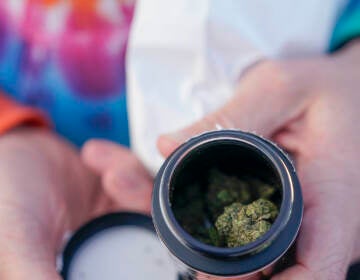They got busted for weed. Now Delaware might license them to grow or sell it legally
More than one-third of Delaware licenses will go to people who have marijuana convictions or grew up in a “disproportionately impacted area.”
Listen 2:50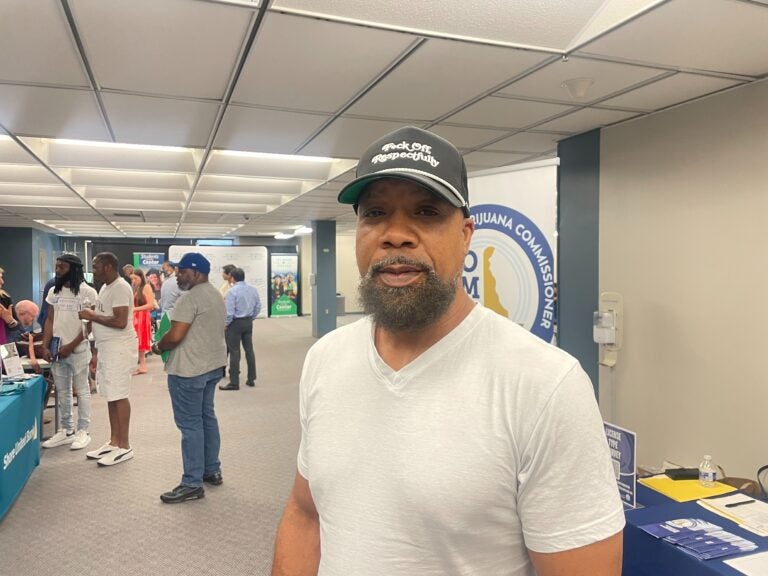
Kwadzo Watson wants to win licenses to grow and sell weed and make gummies and other products. (Cris Barrish/WHYY)
From Philly and the Pa. suburbs to South Jersey and Delaware, what would you like WHYY News to cover? Let us know!
Kwadzo Watson and Matthew Rall have been busted for marijuana in the past, but now they’re looking to start growing and selling weed legally.
Longshoreman Anthony Fairley also is mulling whether to get into the cannabis business. Fairley has a clean record but lives in a section of Wilmington where weed arrests have been rampant.
All three men could be eligible to get so-called social equity licenses that will be issued later this year as Delaware begins launching its legal marijuana industry. Personal-use quantities of weed have been legal for people 21 and older since April 2023, and since then state officials have been working to create a regulated cultivation, manufacturing, testing and retail market.
Of the 125 licenses that the year-old Office of the Marijuana Commissioner can issue, 47 are reserved for qualified social equity applicants. The cost to apply for a social equity license is $1,000, compared to $5,000 for an open license. Those who do get a social equity license also will pay less in annual fees.
To qualify, aspiring cannabis entrepreneurs must have at least 51% ownership in the proposed business, and meet one of the following criteria:
- Lived for at least five of the last 10 years in what the state calls a “disproportionately impacted area.” In essence, that’s a defined census area where marijuana arrests have been high in the last decade. Last week the state released a map that allows people to type in their address to find out if they live in such an area.
- Been convicted of a marijuana-related offense, as long as it wasn’t for selling more than 11 pounds or dealing to a minor.
- Had or has a parent, legal guardian, child, spouse or dependent who was convicted of a marijuana crime.
With the state gearing up to start accepting applications Sept. 1, officials have been holding workshops to educate prospective social equity licensees on the ins and outs of the marijuana industry. The forums include presentations on banking, tax, real estate, insurance and legal issues involved in running a weed business, which is heavily regulated and takes hundreds of thousands of dollars in capital just to get started.
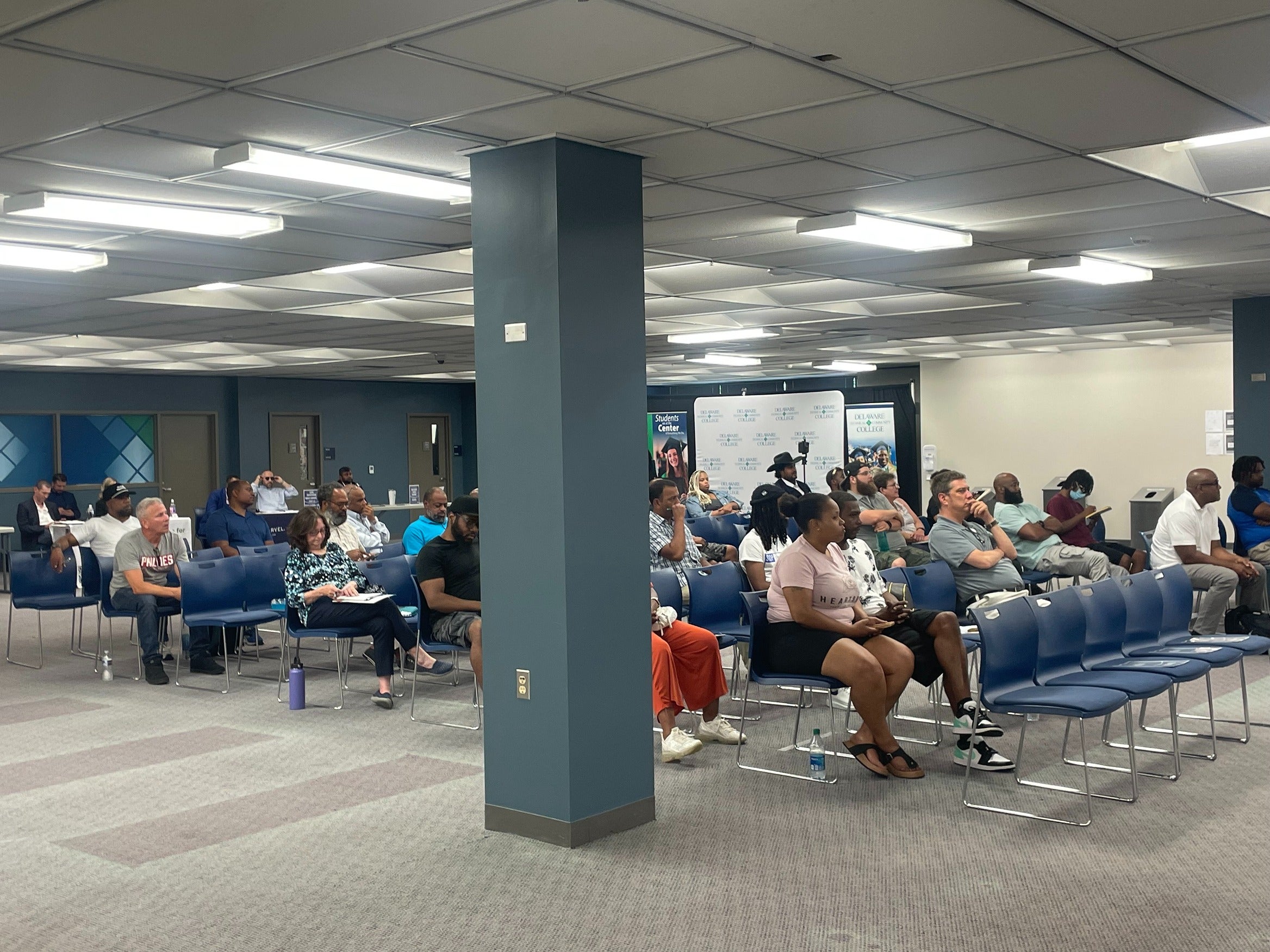
“We want to spread information and give resources so that the social equity applicants don’t waste money and don’t get taken advantage of,” Deputy Marijuana Commissioner Paul Hyland told WHYY News during a forum this month at Delaware Technical Community College’s Wilmington campus. “So we’re going to try and empower everybody with knowledge and tools.”
‘Literally, 10–20 years ago, we were hiding it. Now it’s legal’
Even though costs are high and regulations stiff, Hyland said he expects up to 200 applicants for the 47 social equity licenses. To that end, several prospective applicants trekked to Delaware Tech, hungry for info about getting into the new industry.
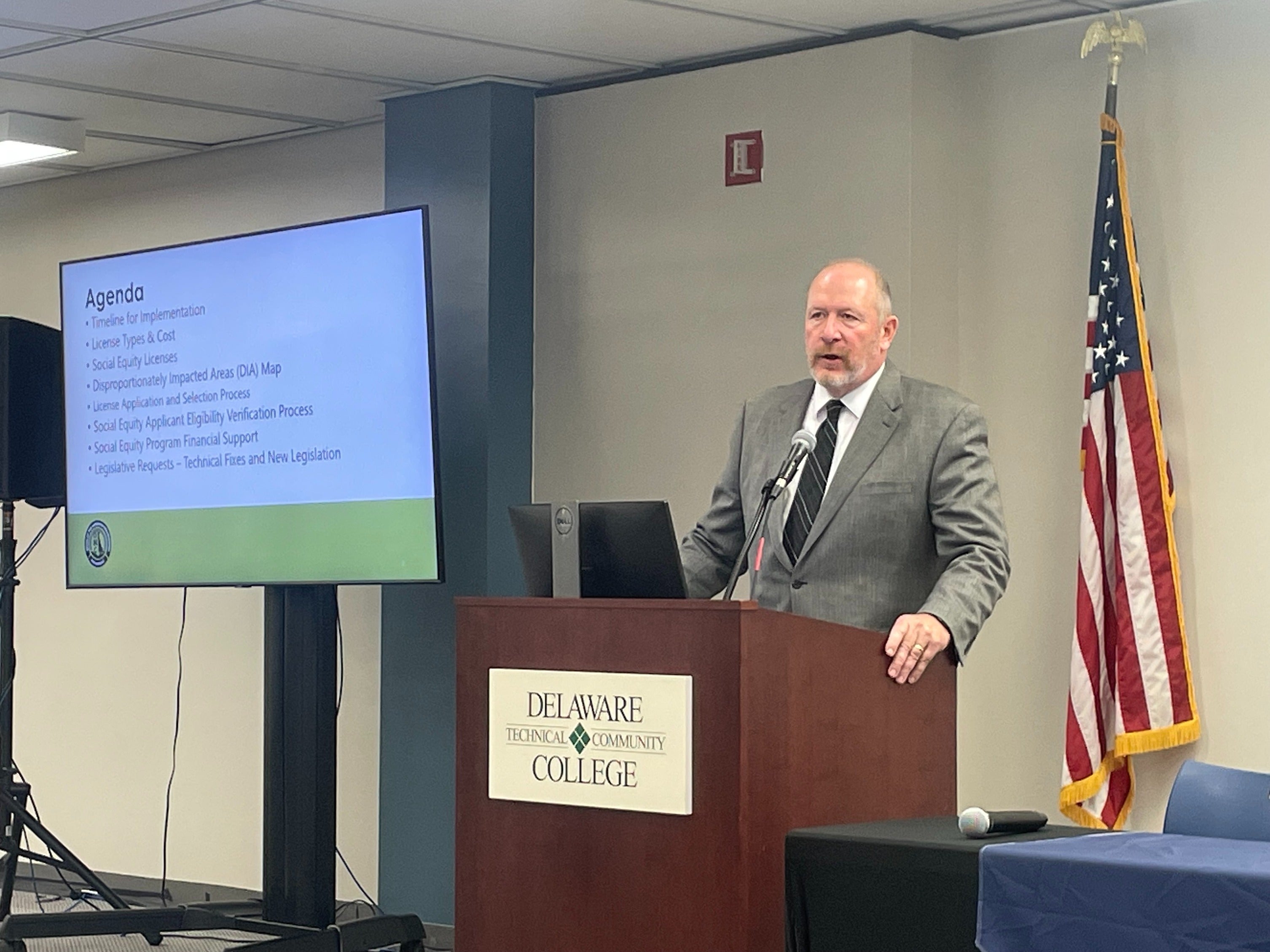
Watson, who runs a cleaning business, said he’s been to cannabis industry events in other states while preparing to apply in Delaware.
“Actually, I’m interested in cultivation, manufacturing and retail,’’ Watson said. “I’m going for all three licenses.”
Watson said he qualifies as a social equity applicant because of a prior conviction and the fact that he lives in a northeast Wilmington neighborhood where police have frequently made marijuana and other drug arrests.
He’s eyeing sites in rural Kent County to grow weed and to manufacture gummies and other edible and prepackaged products such as tinctures and oils. For a retail storefront, he’s looking at “somewhere close to the highway’’ so it’s convenient for customers.
Watson’s also amazed that he’s in a position to deal weed with a state-issued license.
“Literally, 10–20 years ago, we were hiding it. Now it’s legal,’’ Watson said. “You can get it for your medicinal purposes and now it’s going to be recreational. It’s a bright future.”
Rall, who grew up in Dover and lives in New Castle County, got busted for possession in college but now has a CBD store that sells hemp-based cannabis products off Kirkwood Highway.

Rall said he was previously involved in the medical marijuana business in California, and now that recreational use is legal in his home state, he wants in.
“I do have retail experience, so in that sense, I might look better on paper for a retail application,’’ Rall said. “I feel like my heart’s more like I want to cultivate, but I’m willing just to get my foot in the door because I’ve been doing this for a long time.”
Lawmakers consider bill that would provide social equity grants
Rall said he’s been lining up investors but is also interested in a possible pool of a few million dollars in grants that could be available to help social equity licensees get started.
That money hinges on a bill that would let current medical marijuana licensees convert to recreational licenses for a $200,000 fee. The legislation passed in the state House this month and awaits action in the Senate. Rep. Ed Osienski, the House sponsor, says he’s confident it will pass before the General Assembly adjourns June 30.
While some critics say the measure would give medical licensees an unfair leg up in recreational sales, Hyland said it would also help recreational sales begin in the spring of 2025. That’s because medical licensees would be able to start growing recreational weed before other licensees. Otherwise, Hyland said, recreational retail sales might not start until sometime in 2026.
The Delaware Tech event also drew interested parties like Fairley, who said he’s looking to generate income to supplement his pay at the Port of Wilmington.
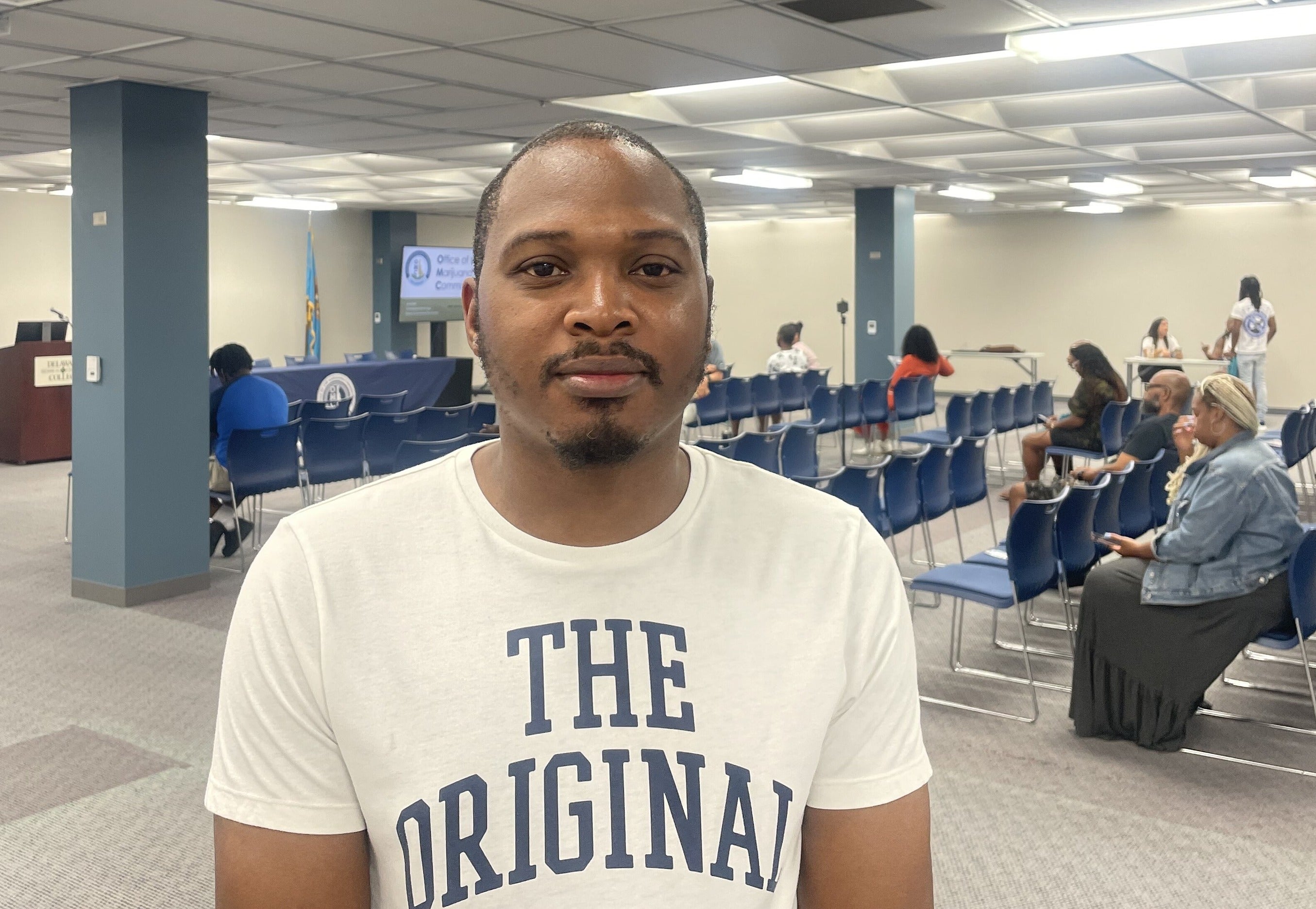
“I’m looking to get education, see what’s going on. What’s the positives? What’s the negatives?” Fairley said. “It’s a growing business. So you know, it’s always good to think about your future. You never know what can happen in life. You can always set yourself up for a safety net.”
Fairley said he’s cognizant that the red tape and costs could be prohibitive for many people who grew up in poor neighborhoods or have had brushes with the law, especially since banks won’t loan money to businesses selling a substance that is still illegal under federal law.
“It’s not going to be an easy process,’’ he said. “You pretty much have to have your own funding or have people invest in you.”
Also attending the forum was Jennifer Stark, CEO of The Farm, a medical grower and retail company with facilities in Kent and New Castle counties.
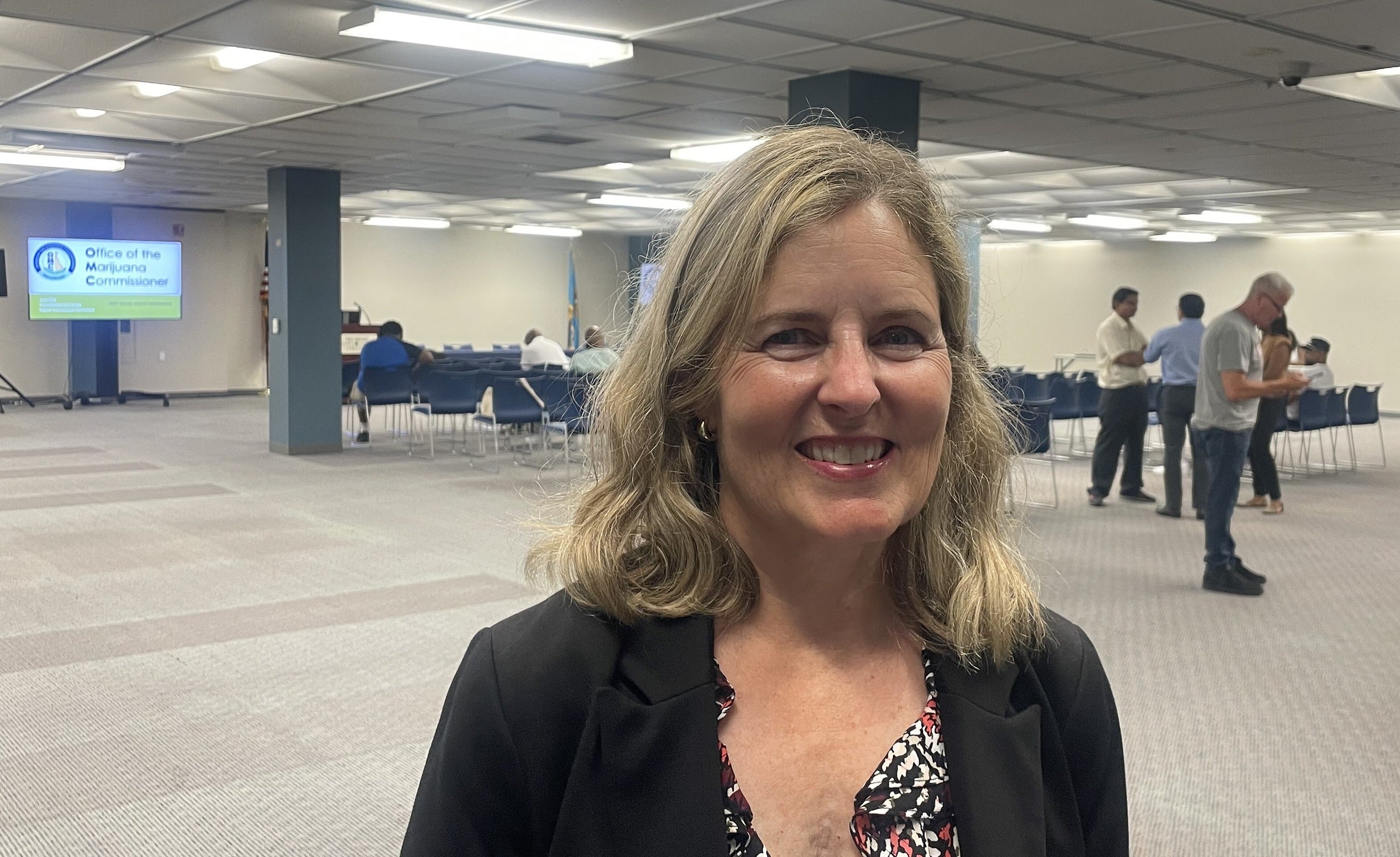
Stark said applicants for licenses, whether on the social equity track or not, need to be aware of the steep challenges. There’s the need to find an affordable storefront or warehouse. Licensees also need to comply with copious quality control regulations where every plant has a barcode to track the product to the point of sale, she said.
“Plan for the worst, hope for the best,’’ said Stark, who has a background in engineering. “Make sure that you also have access to a lot of capital because it’s not easy to go. You can’t go to a bank and get a loan. It’s not a traditional industry.
“Vet your vendors. Get many quotes. Whenever you say you’re in the cannabis industry, everything gets inflated.”
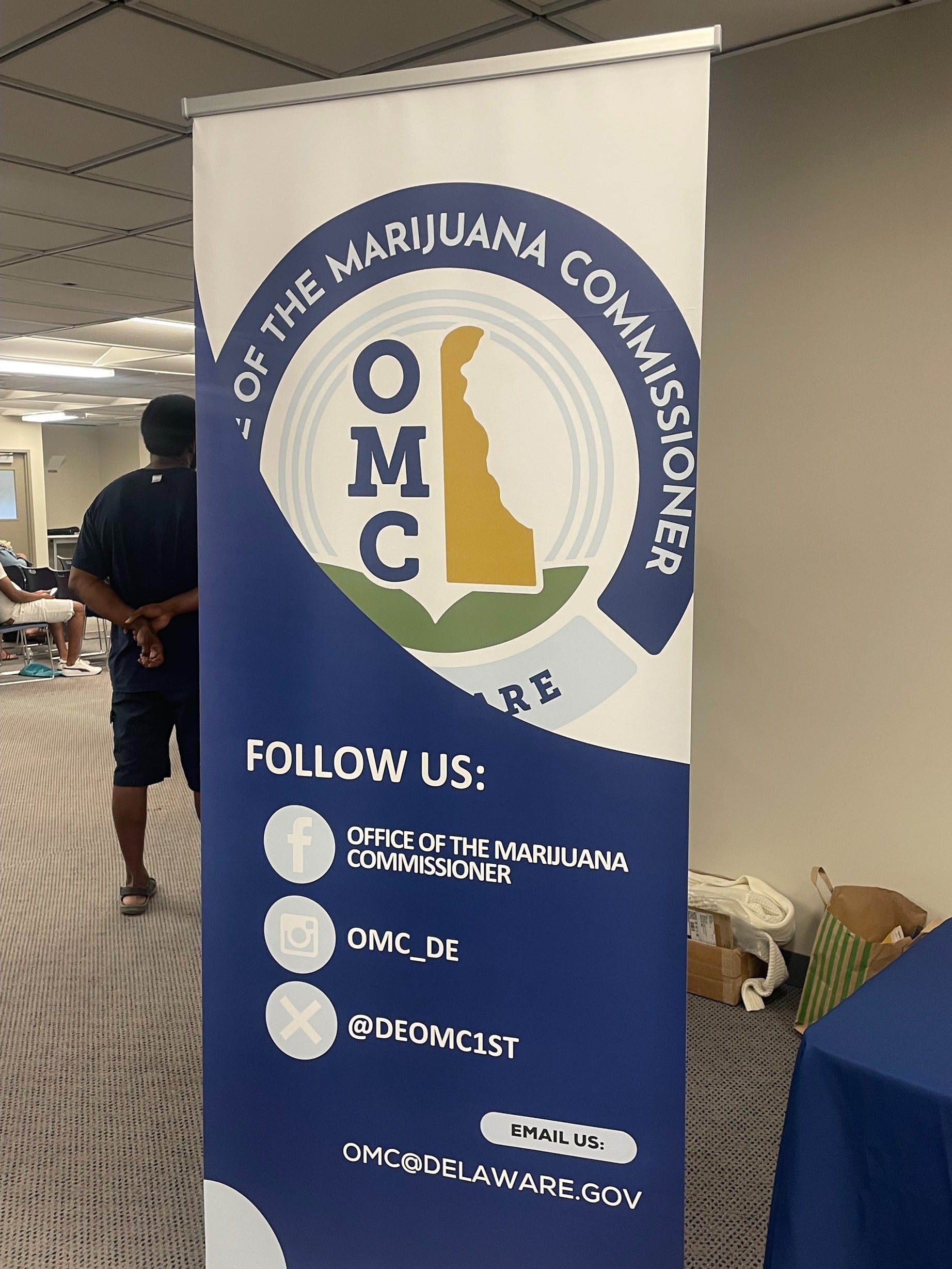
Stark also noted social equity hopefuls can join forces with established businesses, as long as the new applicant has a 51% ownership stake.
“Partnering with someone is also definitely an avenue to investigate,’’ she said. “Someone that also has access to capital and just know-how and knowledge about the industry.”

Saturdays just got more interesting.
WHYY is your source for fact-based, in-depth journalism and information. As a nonprofit organization, we rely on financial support from readers like you. Please give today.



